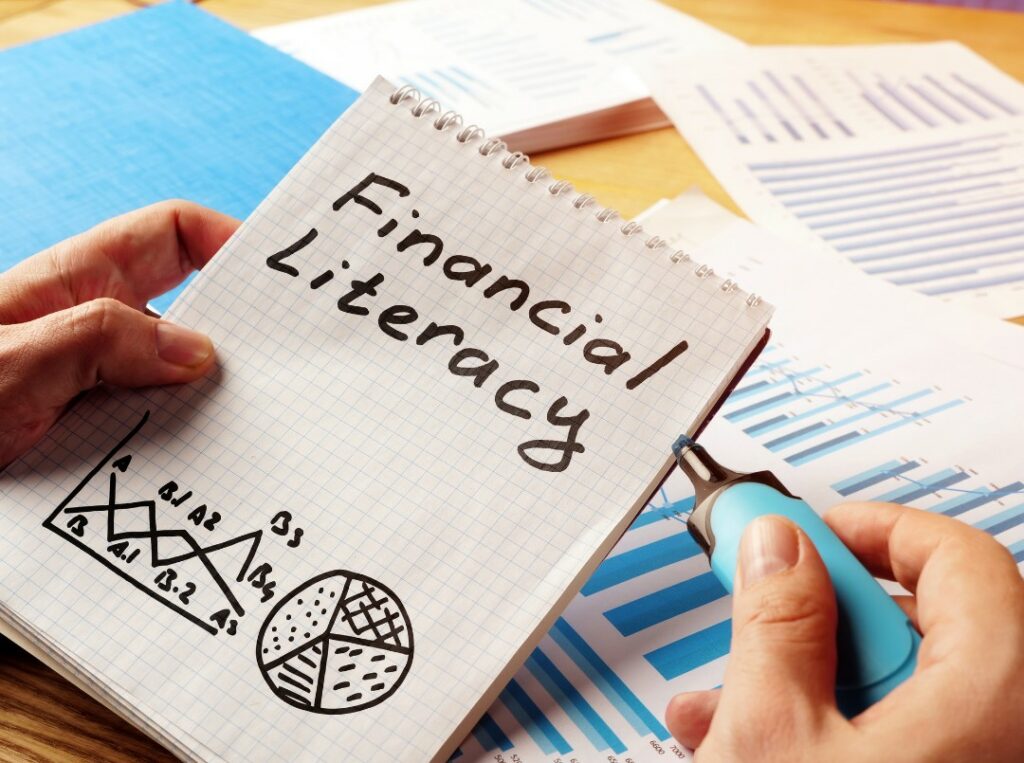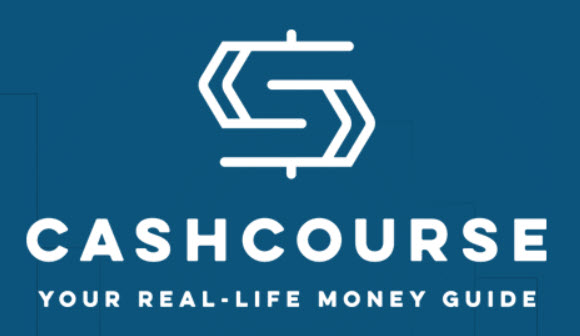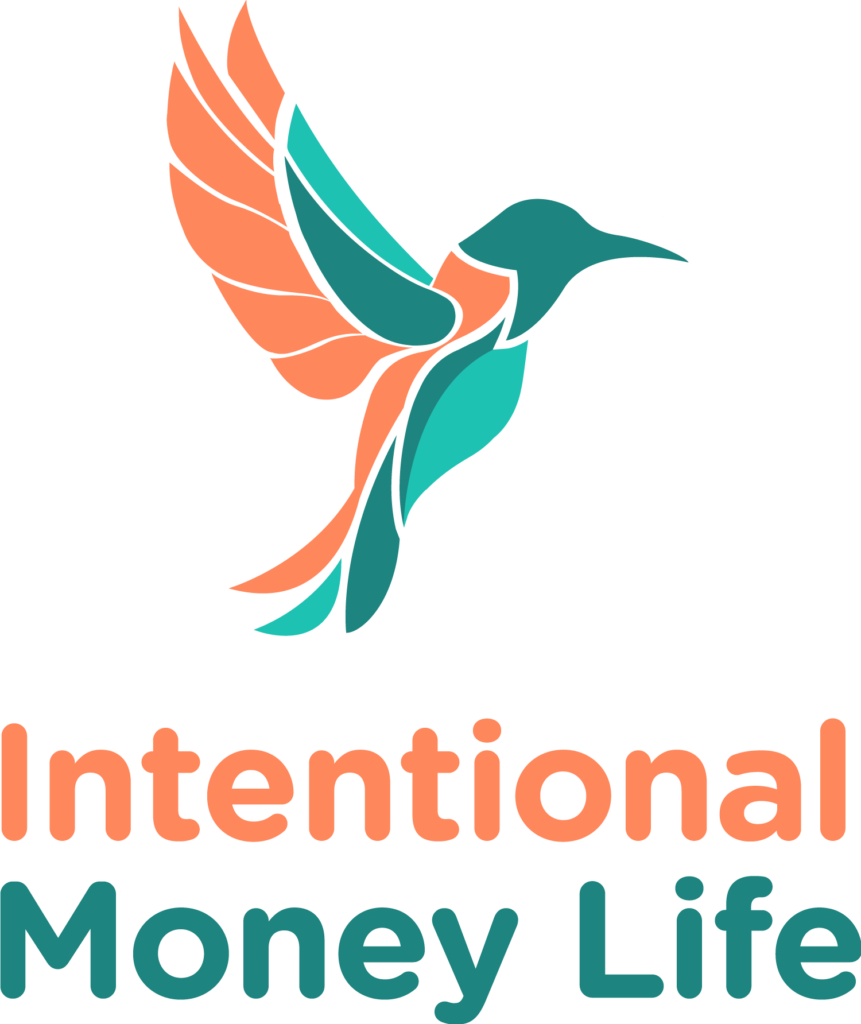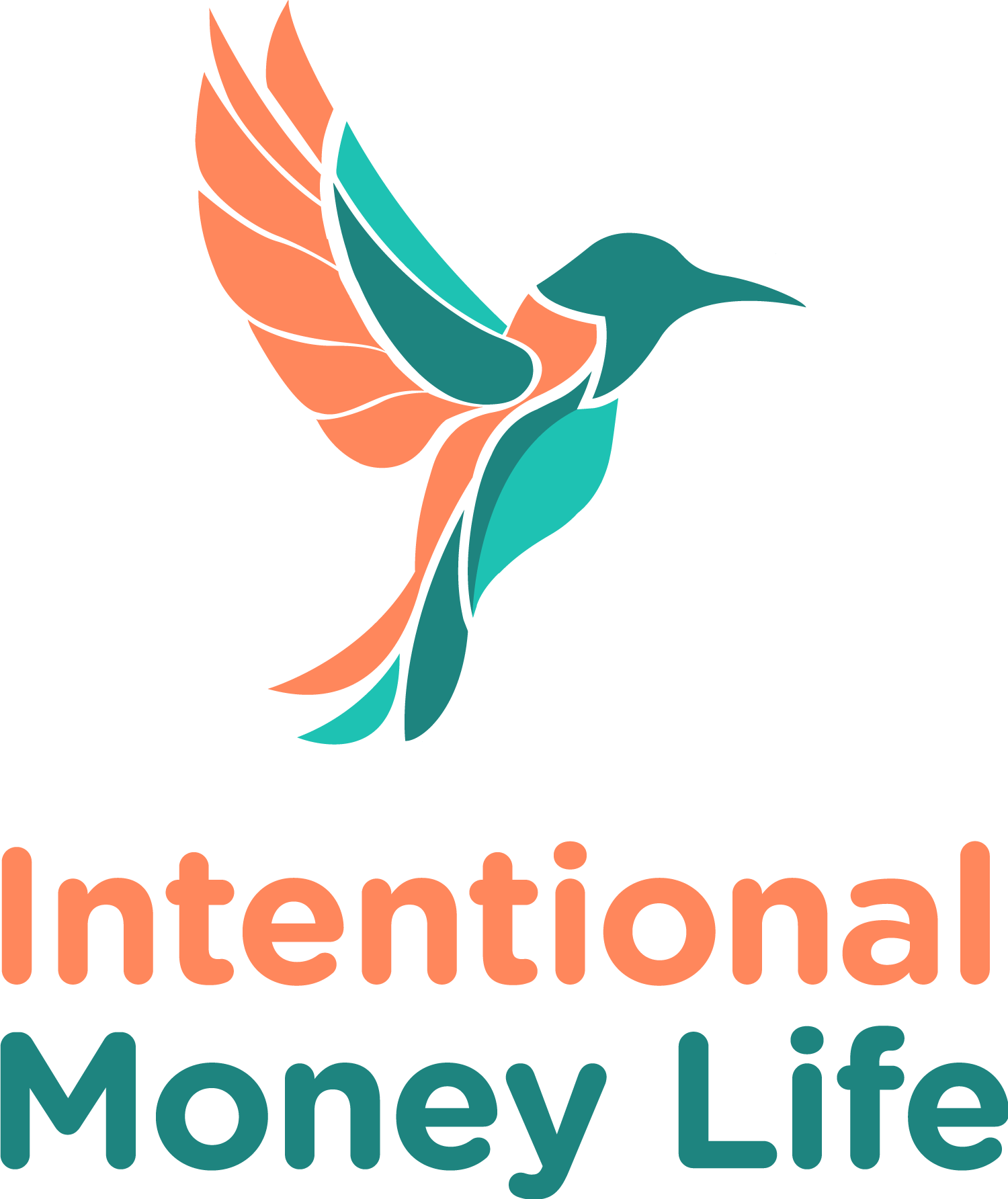Financial Literacy Courses: Take Control of Your Money Today

A solid financial foundation is essential to your economic and overall well-being. Money-smart people know how to manage money savvy, build good credit, and minimize credit card debt. Their financial future is bright and secure with retirement plans. Many people say that higher costs keep them from saving, but the prices aren’t going anywhere. Breaking out of this damaging financial cycle requires a solid understanding of money and money matters.
Financial literacy isn’t rocket science. It’s the basic knowledge needed to make financial decisions and manage money effectively–no matter how much you have. Although opening a checking account, understanding how credit scores work, and moving beyond paycheck-to-paycheck living sound simple, they’re not. Personal finances are personal, and building good money habits takes time.

What is Financial Literacy?
A recent CNBC article reported that 56% of American households do not have an emergency fund to cover an unexpected $1,000 bill. Money matters can indeed be intimidating. However, they don’t have to be. Financial literacy is a basic understanding of financial concepts. It represents knowledge about earning, saving, investing, spending, borrowing, and protecting money. Financial literacy helps us make informed decisions confidently. In addition, it helps minimize vulnerability to fraud, debt, bankruptcy, a poor credit score, and more.
Becoming financially literate is paramount. It not only requires someone to learn a variety of skills to manage their money, but it requires them to use what they learn in practice. Often there aren’t any right or wrong answers, and everyone will make mistakes. However, what matters most is continuously learning and increasing financial knowledge to make informed economic choices in the future. Your fiscal success depends on it.
Financial Literacy Courses
Education programs aimed at improving financial literacy focus on budgeting, saving money, how investing works, types of debt, and spending habits. Some courses are lengthy, while others are shorter. The following is a list of seven financial courses.
1. Clever Girl Finance Personal Finance Courses
Clever Girl Finance, “a mission-driven financial empowerment platform,” was created in 2015 by Bola Sokunbi. The site operates a blog, podcast, and online schoolhouse with 100% free courses on budgeting, spending wisely, debt management, credit cards, investing, and retirement accounts. In addition, students will also find classes on ways to create multiple streams of income and how to build a business.
Courses are hosted on Teachable. Once you’re enrolled, you can take any of the classes offered. Coursework is an easy-to-understand format with text and videos that you can work through at your own pace and convenience. You can complete most in one to two weeks. These courses are for beginners but open to anyone looking to learn more about personal finance.

2. Suze Orman’s Personal Finance Online Course
Suze Orman is an internationally known finance expert. Her online finance course covers financial topics such as debt, life insurance, homeownership, mortgages, college, investments, retirement, and more in seven lessons.It costs $54 but comes with a 30-day money-back guarantee. The course is for beginners that need to learn the basic fundaments of money management. The course isn’t to help people already struggling with their finances.
3. The University of Illinois Urbana-Champaign’s Financial Planning For Young Adults
The University of Illinois offers the Financial Planning for Young Adults course at Urbana-Champaign. It’s hosted on Coursera and taught by three economics and financial planning instructors. The introductory course focuses on basic financial planning concepts over eight modules in four weeks. Topics include goal setting, saving, budget, investments, risk, loan debt, and more. Participants learn through video vignettes and are encouraged to think critically about the scenarios and participate in discussions with other students. The course is thorough and a great introduction to financial planning and personal finance.



4. The National Endowment For Financial Education’s CashCourse
The National Endowment for Financial Education (NEFE) is dedicated to advancing financial education. The organization developed the CashCourse to provide free personal finance education to college students. The program takes a holistic approach to finances with instruction on earning, saving, investing, protecting, spending, borrowing, and paying for education. Students will find customizable worksheets, budgets, and calculators, as well as guides to help answer real-life money questions about student loans, financial aid, investing, and more. The program is thorough and intended for beginners.
5. TD Ameritrade’s Investing Basics
TD Ameritrade is an online investment platform. It offers several investing courses for beginners and advanced students. Lessons are easy to follow and cover a wide range of topics like fundamental analysis, technical analysis, options, budgeting, retirement planning, and more. Courses are thorough and full of valuable information to help you learn more about investing and personal finance. TD Ameritrade’s Investing Basics is a must for anyone learning how the stock market works and how to do fundamental analyses.
6. edX’s Finance for Everyone: Smart Tools for Decision Making
The University of Michigan’s edX introduction to finance course, Finance For Everyone: Smart Tools for Decision-Making, provides beginners with an appreciation of the power of finance. Students can expect to gain fundamental knowledge applicable to personal and professional situations. It is centered around decision-making tools and the concept of Time Value of Money (TVM) that apply to everyday decisions.
Before enrolling, students should complete a secondary high school algebra and understand basic math concepts. The course is free and takes approximately six weeks to complete at your own pace. Students may upgrade their enrollment for $49 to receive unlimited access to materials, support, graded assignments, and certificates.
Alternatives to Financial Literacy Courses
You can teach yourself the financial skills to manage your money with various educational resources. Regardless of your background, you can improve your financial literacy through personal finance and investing books, blogs, podcasts, or talking to friends and family about managing money. In addition, apps like You Need a Budget, Acorns, and Personal Capital offer articles and financial literacy training tools to help.
You can also work one-on-one with a financial planner, credit counselor, or financial coach. However, if you decide to work with an advisor or coach, make sure you understand what they say. You don’t want to rely on someone else to manage your money completely.
7. Money Skills
Money Skills is a free university-level personal finance course for beginners taught by two George Mason University professors. The course covers ten lessons using videos and exercises. Students learn how to invest, buy real estate, save money, and pick the right career. The platform houses an extensive library of free educational videos on economics.
Why Is Financial Literacy Important?
Like it or not, we need money. Money supplies for our basic needs and buys our time. It gives us the option to eat healthy food, live in the neighborhood we love, travel, share, and do so much more.
A lack of financial literacy is costly. The National Financial Educators Council found that people who didn’t know how to manage money cost $1,389 in 2021. That equates to more than $350 billion when generalized to the approximately 254 million adults living in the U.S.
Financial health and mental health are intrinsically linked. Financial stress is associated with anxiety, depression, fatigue, sleeplessness, unfinished work, poor relationships, and poor work quality.
The Bottom Line
Fewer than half of high school students graduate are required to take a personal finance course. However, financial literacy is critical to building money management skills, financial stability, and financial independence to do what you want.
Start building financial literacy now to avoid the negative consequences of financial illiteracy.
You can begin today with one of the financial resources outlined in this article. The online-learning programs will teach you how to manage your checkbook responsibly, spend money, save for emergencies, and pay yourself first. Then commit to learning something new every month and set a long-term financial goal with a solid foundation.
Although most courses are for beginners, you can never learn too much. If you need advanced financial advice, be sure to consult with a financial advisor or seek credit counseling.
Money management tips can help you achieve financial success, but you have to personalize them.
If you'd like to meet with Michelle, the owner of Intentional Money Life and a financial planner who can talk to you about financial literacy and investing and all sorts of things, sign up for a one-time, 1 hour, advice-only financial planning appointment here.
Author Bio Theresa is a finance freelance writer. She founded the blog In The Game Investing to encourage everyday people to invest and take control of their money. She enjoys reading, traveling, cooking, and writing. Her work has been featured on AP News, MSN Money, GoBanking Rates, Wealth of Geeks, Savoteur, and more.
If you’re looking for courses to help you develop your financial literacy and use your money as a tool to create the life that YOU want, check out my courses! Not only do I provide financial education, but I also help you figure out how to apply it to yourself and take action.
Would you like to move from financial confusion to financial intention?
My courses are for you if you:
- Feel insecure and overwhelmed about finances.
- Are ready to face your fears and conquer money so you can intentionally save, spend, and invest money in line with your values and goals.
- Want to make strategic decisions, then automate your finances.
- Want to invest to grow your wealth and create time freedom, so you can spend your time how you want, rather than working to survive.
- Would love to provide your children with more opportunities and experiences than were available to you.

